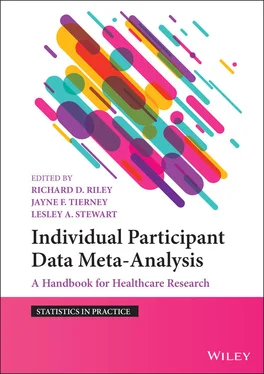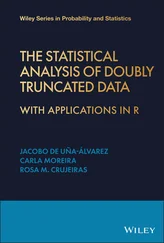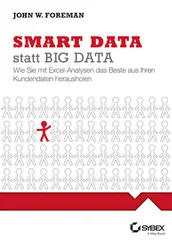1 Originality, relevance and potential impact of the project
2 Explaining the importance of using IPD
3 Clear articulation of aims and methods
4 Likely availability of IPD from existing trials
5 Justification and supporting evidence for the level of resource requested
6 Experience of the research group undertaking the review
Clearly a number of these points apply to all funding applications, but issues around the rationale for using IPD (and justification of the associated level of resource) and about the likely availability of IPD require specific and detailed consideration and explanation. Providing evidence that key trials (especially the largest, most recent or highest‐quality trials) have pledged or already provided their IPD can be a persuasive element of a successful funding application. Power calculations, based on characteristics (such as number of participants, number of outcome events, and variance of participant‐level covariates) of those trials promising their IPD, can help persuade funders (and indeed the IPD project team themselves) that the endeavour is worth the investment ( Chapter 12). 33,49
Commissioned calls for IPD meta‐analysis projects are relatively rare but seem to be increasing in frequency. Here, the case for the IPD meta‐analysis per se may not need to be made in as much detail. However, the challenge of preparing a funding bid (which will include performing many of the preparatory steps outlined in this chapter) to a short deadline is substantial. One aspect that can be particularly tricky is the need to convince the funder that the project team will obtain sufficient IPD for credible analysis. For many IPD meta‐analysis projects, it is difficult to ascertain willingness to participate in the short period of time between a funding call and grant submission. Although trial investigators can be approached for in principle agreement to collaborate, it can be difficult to make a persuasive case until the project is established. Furthermore, there is potential for considerable confusion if several research teams making competing applications approach the same trial investigators for in principle support. Within a short time frame it is almost impossible to gain detailed knowledge of which IPD will be available, and there is no crude credibility threshold above and below which the project is deemed feasible or infeasible. As mentioned, a statistical power calculation may be helpful, but for commissioned calls this will most likely need to be made conditional on assuming that particular trials do provide their IPD ( Chapter 12). 49This will require careful explanation in the application, and it may help to provide a range of power calculations based on different assumed IPD retrieval rates.
3.10 Obtaining Ethical Approval
During the planning period, it is important to establish what, if any, form of ethical approval is required for the proposed IPD meta‐analysis project. This matters not just in ensuring that the project itself is adhering to ethical standards and good research practice, but is also information that those supplying IPD may need in order to gain their own clearance to release data. Host institutions may take different approaches; although some will grant a waiver from requirement for formal ethical review, others may decide that this approval is required. If formal ethical review is needed, this should be factored into the project timelines, especially as it may take some time to complete. Research funders will often require that either a waiver is in place or approval has been granted before they will release funds.
Key points that may be made when applying for exemption or making an application for ethical approval include:
IPD meta‐analyses use existing data and do not involve recruitment of participants (although see Section 3.12regarding prospective IPD meta‐analysis).
The IPD obtained and used will not contain any direct identifiers for participants, such as names or identifying numbers that are known to anyone outside of the immediate trial management team.
The IPD will be held securely at the central research team’s host institution with access restricted to members of the team.
The IPD will be held, managed and used according to a binding data‐sharing agreement or contract, including commitment that the recipient project team will make no attempt to re‐identify trial participants.
The research questions to be addressed in the IPD meta‐analysis project are the same as or close to those to which the trial participants originally consented.
It is also worth highlighting these points in the IPD meta‐analysis protocol, and in data‐sharing agreements, as they may help IPD providers gain permission to release their data.
Discussions around ethical approval might draw on evidence that patients are generally supportive of their clinical trial data being re‐used in further research activity provided that there are appropriate safeguards around confidentiality. A consultation exercise undertaken in 2008 by the National Cancer Research Institute (NCRI) demonstrated that most respondents believed that material and data collected from patients with cancer should be used, without identifiable information, as broadly as possible and that retrospectively seeking consent was inappropriate. 82A systematic review of quantitative and qualitative research studies found widespread, although conditional, support among patients and the public for data sharing for health research. 83Although participants recognised actual or potential benefits, they expressed concerns about breaches of confidentiality and potential abuses of the data.
In our experience, trial investigators do not generally require formal ethical approval to share their trial IPD, and sharing may even be a pre‐condition of the original funding for their trial. They may, however, need to apply to an institutional review board or a central legal department for formal approval. Requirements will vary internationally, institutionally and according to the design of the study from which they are sought, and are subject to change. Those providing data will need to comply with legal and ethical requirements accordingly. In an IPD meta‐analysis project that developed a risk prediction model for infection in children being treated for cancer presenting with febrile neutropenia (a fever indicating possible infection and risk of complications), 84we collected de‐identified IPD from both clinical trials and audit, and ascertained which data providers required ethics, institutional or other approval and authorisation before they could share IPD with the project. Table 3.1shows those that did and did not require formal approval.
Table 3.1Consent sought to collaborate in an IPD analysis of predictive factors for infection in children being treated for cancer presenting with febrile neutropenia
Source: Adapted from Phillips et al., 85with permission from BMJ Publishing Group Ltd.
| Country |
Study type(s) |
Review body approached |
Review body |
Answer |
| Belgium |
Prospective |
Yes |
University Hospital Review Boards |
Agreed |
| Bulgaria |
Prospective |
No 1 |
– |
– |
| Canada |
Prospective |
No 1 |
– |
– |
| Canada |
|
|
Institutional Review Board |
Agreed |
| Chile |
Prospective |
No 1 |
|
– |
| Germany |
Prospective |
No 1 |
– |
– |
| Italy |
Prospective |
No 1 |
– |
– |
| Netherlands |
Prospective |
No 1 |
– |
– |
| Slovenia |
Prospective |
|
Medical Ethics Committee |
Agreed |
| Switzerland |
Prospective and retrospective |
|
Hospital Review Board |
Agreed |
| Turkey |
Audit |
No 2 |
– |
– |
| UK |
Audit |
|
NHS Ethics Committee |
Agreed |
| United States |
Retrospective notes review |
|
Institutional Review Board |
Agreed |
| United States |
Prospective |
No 1 |
– |
|
1) No prior consent to primary study;
Читать дальше












